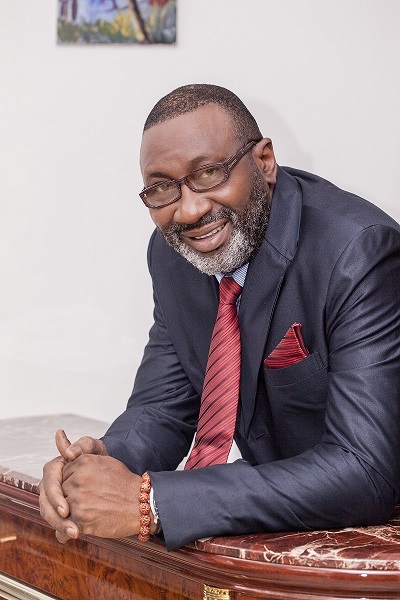Nigeria shall Rise Again – Abayomi Odunowo.
Nigeria, a country known for its rich culture, diverse population, and economic potential, has faced its fair share of challenges in recent years. From political instability to economic downturns, Nigeria has experienced setbacks that have caused many to doubt its future. However, just as the scripture in Job 14:7-9 offers hope for a tree that has been cut down, there is hope for Nigeria to rise again.
Despite its struggles, Nigeria has proven time and time again that it is a resilient nation. Its people are driven, resourceful, and eager for positive change. With a renewed focus on good governance, sustainable development, and economic diversification, Nigeria has the potential to sprout again and thrive.
It is through the unity and strength of its people, the commitment of its leaders, and the support of the international community, that Nigeria can once again blossom and bring forth boughs like a plant. The scent of water in this context represents the hope and possibility of renewal and growth. Nigeria, with its vast natural resources, talented workforce, and entrepreneurial spirit, has the necessary foundation to rise again.
As Nigerians, we must hold onto hope and work tirelessly towards a brighter future for our beloved country. Nigeria shall rise again – this is not just a statement, but a belief in the inherent potential of our great nation. Let us stand together, united in our vision for a prosperous Nigeria.
Review 4
Nigeria, a country with a rich cultural heritage, abundant natural resources, and a resilient people, has faced its fair share of challenges throughout its history. From colonial rule to political unrest, economic instability, and the threat of terrorism, Nigeria has been through difficult times. However, amidst the struggles and setbacks, there is hope for a brighter future. Nigeria shall rise again, and the spirit of resilience and determination that runs through the veins of its people will lead the way.
Nigeria’s history is marked by colonization, civil war, political corruption, economic instability, and security challenges. The country was once under British colonial rule, which left a lasting impact on its governance, economy, and societal structures. After gaining independence in 1960, Nigeria struggled with ethnic and religious tensions, which ultimately led to a devastating civil war in the late 1960s. The aftermath of the war left the country deeply divided and scarred.
In the decades that followed, Nigeria faced political turmoil, military coups, and corrupt leadership, leading to economic stagnation and social unrest. The discovery of oil brought prosperity but also led to a concentration of wealth and power, further exacerbating social inequalities.
The rise of extremist groups such as Boko Haram has brought about security challenges, particularly in the northeastern part of the country. The impact of these challenges has been felt across all sectors of society, hindering the country’s development and progress.
Amidst these challenges, Nigeria’s people have shown tremendous strength and resilience. The spirit of unity and determination has been evident in the efforts of individuals and communities to overcome adversity and work towards a better future.
Despite the challenges of the past, Nigeria stands at a critical juncture with the potential for a positive transformation. The country’s abundant natural resources, large population, and diverse culture provide a solid foundation for growth and development. The government has made efforts to address corruption, improve governance, and diversify the economy away from its heavy reliance on oil.
Nigeria has also seen the rise of a new generation of leaders and entrepreneurs who are driving innovation, creating opportunities, and promoting positive change. The Nigerian diaspora, with its strong ties to the country, has played a significant role in supporting development initiatives and fostering connections with the global community.
The Nigerian youth, in particular, have shown great potential to lead the country towards a brighter future. With their creativity, passion, and resilience, they are driving social and economic change, challenging conventional norms, and advocating for a more inclusive and sustainable future.
Nigeria’s rise again is not a mere wishful thinking, but a call to action for all its citizens and friends of Nigeria. It is a call for unity, collaboration, and shared responsibility in building a better nation. It requires a commitment to good governance, accountability, and transparency at all levels of society. It demands inclusivity, where every Nigerian is given an equal opportunity to contribute to the country’s progress.
Education, innovation, and entrepreneurship will play a crucial role in Nigeria’s rise again. By investing in quality education, promoting research and development, and creating an enabling environment for businesses to thrive, Nigeria can harness the potential of its people and resources to build a prosperous and sustainable future.
Furthermore, addressing security challenges and promoting peace and stability is essential for Nigeria’s rise. By fostering dialogue, reconciliation, and community engagement, Nigeria can create a conducive environment for growth and development.
In conclusion, Nigeria shall rise again, not through wishful thinking or empty promises, but through the collective efforts of its people, leadership, and friends of Nigeria. The country’s past challenges have tested its resilience, but they have also laid the foundation for a brighter future. With a sense of unity, determination, and a shared vision for progress, Nigeria can overcome its obstacles and emerge as a beacon of hope and prosperity on the African continent. As the scripture in Job 14:7 states, “For there is hope of a tree, if it be cut down, that it will sprout again, and that the tender branch thereof will not cease.” Nigeria’s resilience and determination will lead the way towards its rise again.
Otunba Abdulfalil Abayomi Odunowo
National Chairman AATSG
12th January, 2024





